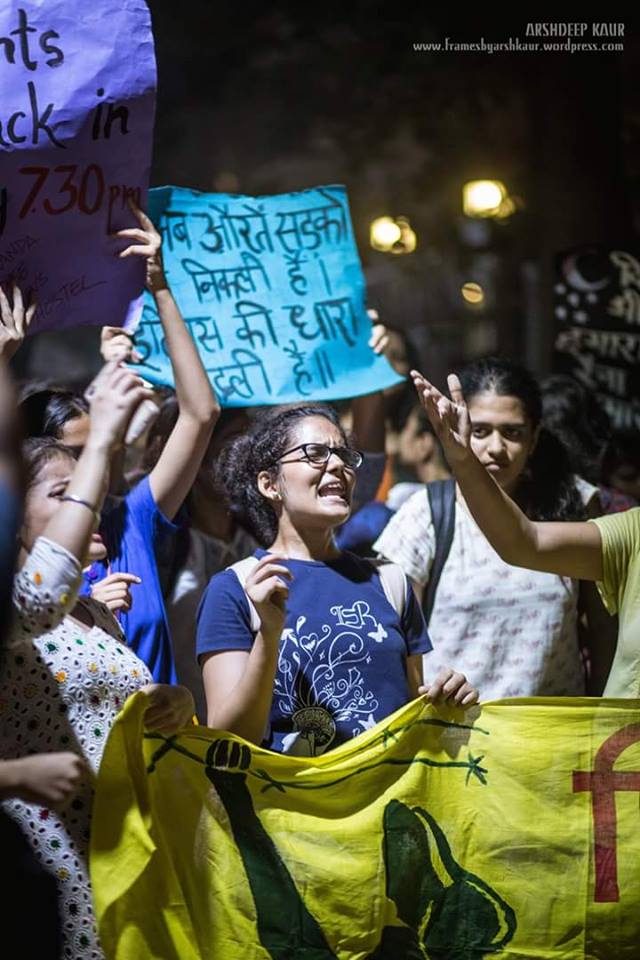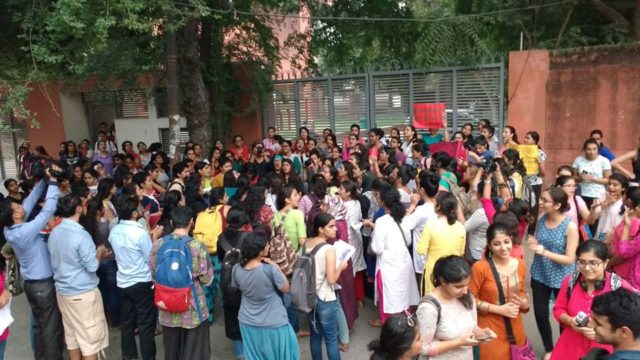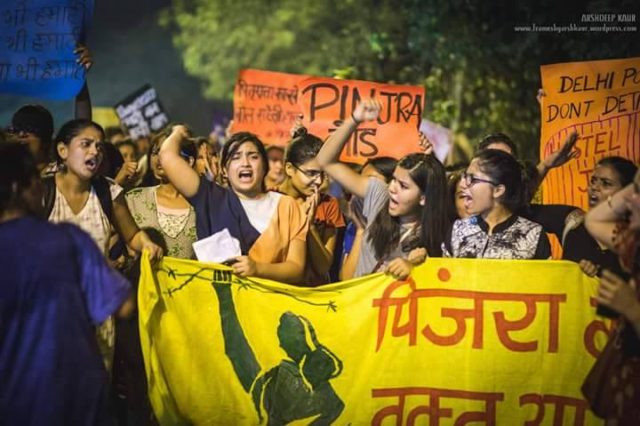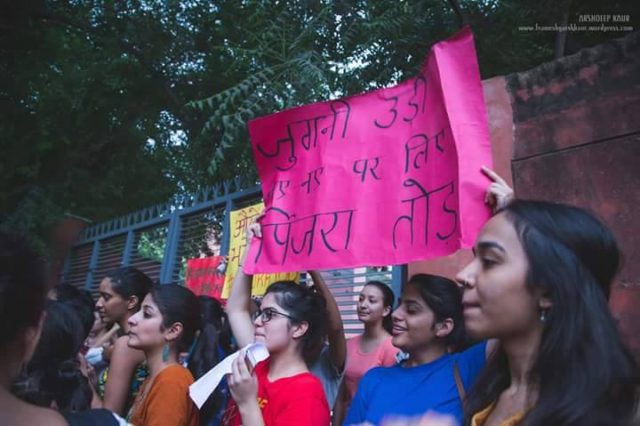By Kankana Saikia
Historically, women have had to fight a long unending battle to reclaim what was denied to them on a foundation of prejudices. The various waves of feminist movements saw empowered educated women come out from their shadows and take to public spaces.
They voiced the injustices they had suffered and demanded the basic equal rights a patriarchal society denied to them. They fought, fought hard. And won.
This is another such story. It’s Delhi, 2016. And it’s PINJRA TOD!
The venue and time had been pre-decided. Word traveled fast, and a sense of excitement filled the air. As dusk hit the city, around five hundred young women gathered in the destination, and hit the streets- their slogans, screams, and songs matching their powerful strides as they went about ‘claiming the streets’.
The date was 3rd October, the venue was South Delhi, and the event was Delhi University South Campus chapter of ‘Women Claim the Streets’ organized by the feminist collective called Pinjra Tod (meaning break the cage).
The Pinjra Tod campaign began in early August, 2015 as a reaction to the cancellation of late-nights for residents of women hostels of the Jamia Milia Islamia University and it emerged as a platform to “discuss, debate, share, mobilise and collectivise struggles against restrictive and regressive hostel regulations and moral policing by hostel authorities; and as well as demand access to safe and affordable hostel accommodation and pro-active functioning of Sexual Harassment Complaints Committee Cells.”
Since then, the campaign has turned into a revolutionary movement, broadening its focus from Delhi-based colleges and Universities to colleges and Universities across the country, incorporating an array of issues under the fold of its activities, and adopting mechanisms such as Jan Sunwais, street plays, protest marches, marches to ‘Claim the Night’ and ‘Claim the Streets’ as a means to achieve their objectives.
The most important aspect of the Pinjra Tod movement is that it has provided women across the country with a platform to narrate instances of sexual harassment, gender bias, and sexist encounters that are often trivialized, hidden, or ignored.
With a Facebook page having close to 15k followers, Pinjra Tod actively uses it as a stage to highlight and share such instances, generating active debate and discussions, and thereby mobilization against the same.
A recent example where an incident gathered rapid momentum was when a second year student of Lady Shri Ram College for Women, Delhi University posted on the Facebook page of Pinjra Tod regarding repeated incidents of men masturbating openly in the streets and inside cars in the lane adjacent to the college, which most of the girls use to commute to and fro from their PGs and metro station.
The post was widely circulated, and many ex-students of the college came forward and shared their own experiences of facing such harassment throughout the years.
This collective rage culminated in the form of the ‘Claim the Streets’ event, where hundreds of girls marched down the very streets where they are harassed, filled with aggressive exuberance, carrying posters and shouting slogans- in short, to reclaim their space.
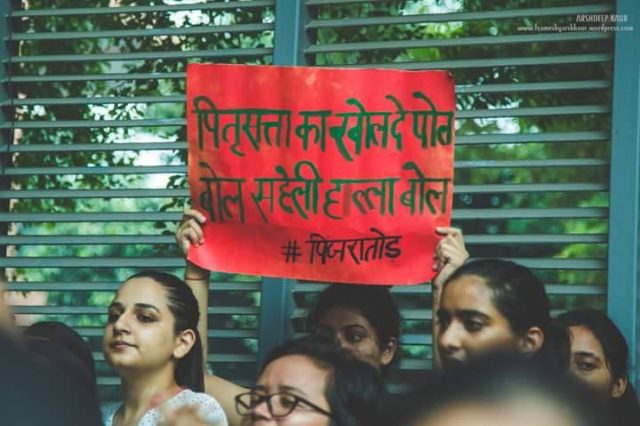
The scrutiny and surveillance that goes on in society in the name of women’s safety lies at the core of this uprising taking place throughout the country.
Be it imposing dress code, or laying down discriminatory curfew timings, be it facing sexual harassment, or facing victim blaming, in every step a woman encounters biased rules, regulations, and restrictions in the name of safety.
Devangana Kalita, one of the founding members of Pinjra Tod has been quoted as saying “… we knew it was something happening across the country, so it was important to connect the personal with a more collective, political struggle.” The fight against such casteist, classist, and sexist discrimination, therefore, persists.
Change, however, is possible. In light of the 3rd October march, a PG owner has removed the curfew timing for the residents for his PG, recognizing the fact that young women are agitated by such discriminatory restrictions.
The underlying principle of the Pinjra Tod movement thus remains unchanging: the streets will be safer when more women take to the streets.
Only by freeing women from the false cages of ‘safety’ can women truly be safe; thus, resistance against the pinjras that guide every woman’s life continues.
Seen from this perspective, Pinjra Tod is creating history through its initiatives, for as it goes, “Whenever women have claimed the streets, history has been rewritten.”
Author bio:
Kankana Saikia is a postgraduate student of Political Science from Delhi University. A firm believer in the power of words, she is ever eager to have engaging conversations on dogs, politics and everything in between. If not found talking, you will probably find her pursuing her one true love: sleeping.
Read More:
http://edtimes.in/2016/09/being-like-a-girl-is-seen-as-an-insult-by-1-in-every-2-girls-why/
http://edtimes.in/2016/09/pink-is-a-rare-film-for-indian-cinema-the-ed-review/
http://edtimes.in/2016/08/small-victory-but-alsds-fight-is-not-over-justiceforsushant/



























